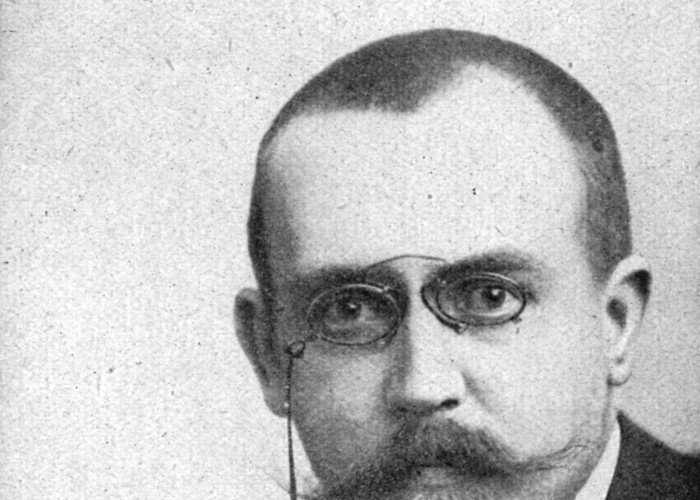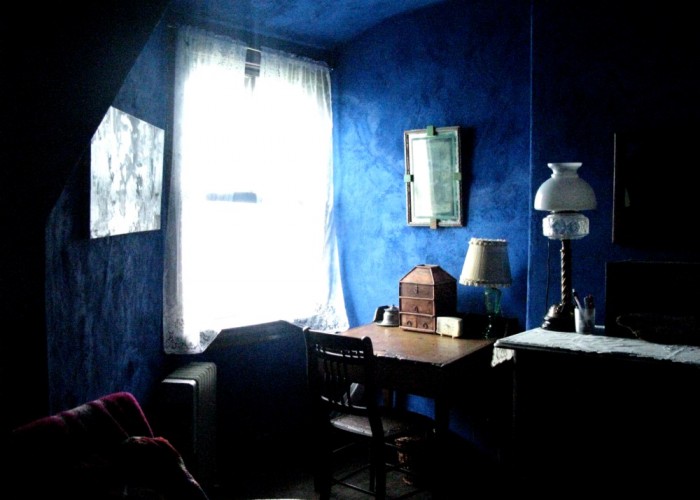Prairie Lights [iowa city]
Hugh Ferrer
For as little as $140, anyone now can now buy his or her own little bookstore—for that is essentially what an e-book reader is: a combination of book and private store, a boutique, almost, with minimal overhead and a vast selection, a distant warehouse’s franchise outlet, scaled for the hand, serviced by a single employee, who is also the owner and the store’s sole customer. And, contrary to inherited wisdom, the success of these handheld machines suggests that there are actually armies of people who have wanted to work in a bookstore, but had never before had the chance.
In the meantime, beautiful independent bookstores like Prairie Lights (est. 1978) have become multi-layered symbols: as bookstores, they resist the unwanted apotheosis of “book culture” into the cloud; as “independents,” they are the victims of the latest corporate assault on “local business,” the lifeblood of “main street,” which big-box malls and now online retailers have been relentlessly siphoning off.
But when I begin to think like this, there is only one place to go.
The high ceiling on the first floor is wired with a softly bright, shadowless, alert lighting scheme, and the floor-plan, which seems wide open at first, carries you in, swallows you, and the reading chairs scattered about feel wonderfully secluded. Like all great bookstores, Prairie Lights feels secure and comforting. There are many sections I never browse—it’s healthy to feel limited; and, given the store’s 40,000 titles, inevitable. A staircase rises to the natural light of the second floor, where a café buzzes, and the bookcases roll away for the almost-nightly readings. On a recent Sunday afternoon, it was overflowing with a crowd of young and old who had turned out for a reading by the most recent winner of the Pulitzer Prize for fiction; at the end of an hour, it seemed as if absolutely everyone were standing in the lines for an autographed copy.
It is at such moments, and not only during a bad day at work, that I wonder why I didn’t, fifteen years ago when I arrived in Iowa City, apply for a job. I wouldn’t mind unpacking and labeling and section-coding and alphabetizing new arrivals, or learning the art of buying from a publisher’s backlist. When I walk past a case, my hand, of itself, aligns a spine reshelved too deeply. And I’ve come to notice that these opportunities to surreptitiously straighten are rare, because the shelves tend to be immaculate, resonating with the loving attention paid to them. And then I can’t help suspecting that there are more hands at work than just the staff’s—that many, if not most, of the customers are, like me, always working there in spirit; and that this is why Prairie Lights feels like everyone’s store.
* *
15 South Dubuque Street – Iowa City, Iowa
[ + bar ]
Bellatin and Japan: an Interview
Mat Chiappe translated by Anna Hardin
Mario Bellatin once said to me: “I don’t want to go to Japan.” I don’t know if we went on talking... Read More »
Passages: My Art as an Everything
Natalia Brizuela on Nuno Ramos translated by Andrea Rosenberg
“No sé.” “I don’t know.” That’s the response Tintin and Captain Haddock get from the inhabitants of the Andean country—vaguely... Read More »
The Tall Trees: A Juno Novelette
Paul Scheerbart translated by Joel Morris
The tall trees groped more and more intensely in the air with their long branch arms and could not... Read More »
O caderno de Natanael
Veronica Stigger
Opalka entrou na pequena sala da casa de seu filho Natanael e caminhou até a janela, embaixo da qual havia uma mesa quadrada de... Read More »








 sending...
sending...